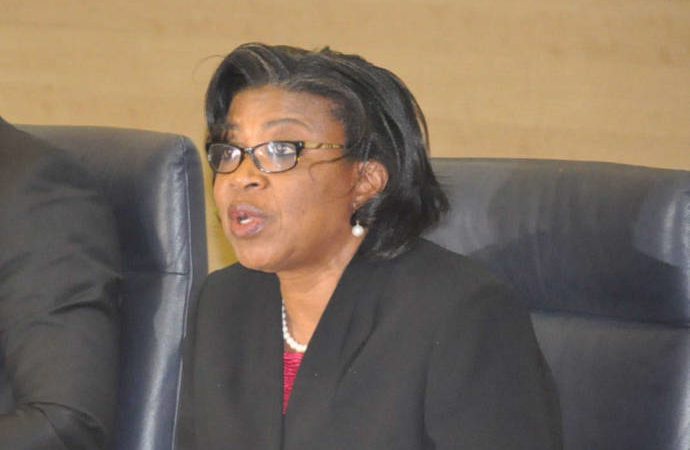
DMO DG: How FG’s Debt Strategy Boosts Liquidity For Real Sector
…Treasury Bills issuance reduced by half
…External borrowing boosts reserves by $6bn
…N830bn injected to local market
Going to the international capital market to borrow is a deliberate policy to help Nigeria boost its external reserves, reduce interest rate and shore up liquidity in the local economy, Director General of the Debt Management Office, Ms Patience Oniha, has said.
Speaking to Daily Trust team in her office on Friday, Oniha said for government to remain the dominant borrower in the local market for long did not augur well for the economy.
She said the organised private sector has for long identified such scenario as one of the major reasons why interest rates were high and why some banks refused to lend money to them.
She said what government wants to achieve with external loans is to balance the borrowing ratio between the domestic and foreign sources at 60/40 respectively in the near future. “Now is in the range of 70/30 per cent.”
“From December to June this year, we have actually retired treasury bills worth about N830 billion. That is why the interest rate drops.”
“We raised $3 billion to retire treasury bills. We have used $2.5 billion so far. There is another $500 million available. In December alone, we retired all the treasury bills that were due. At the moment the treasury bills have been reduced by 50 percent, so that market is stable.”
The DG said some of the advantages of pulling out from the domestic market is that money would go back to the system, because we are the dominant borrowers. By the time we pull out, the real sector will get more money to borrow.”
“That is why most times one of the major highlights of the MPC communiqué is that government is crowding out private sector in borrowing, and the world is watching. So with that strategy that takes us outside to meet all our needs, it means that whatever money is available here is for the real sector,” Ms Oniha stated.
But it still goes beyond that as part of the reason government also gives is, let’s borrow from outside to settle some of the local debts; that would bring down interest rate, because that is good for the real sector and is also good for us too. This is because we will always remain in the domestic market to borrow.”
Ms Oniha urged the private sector operators to pay more attention to corporate bonds. “Issuing a corporate bonds is cheaper and easier,” she said.
“When the real sector gets more capital to operate, it means that the economy will develop faster; it means that the government would earn more revenue; the budget deficit will be less, so I will borrow less. By then the borrowing to revenue ratio will be better. It is good for all of us,” she also said.
She revealed that external borrowing contributed largely to the increase in the external reserves last year, with the fiscal side contributing $4.8 billion.
“The CBN is the banker to the government. We gave them the dollars, they give us the naira. So when you saw a reserve going up, our borrowing was supporting that in such a large manner. It wasn’t from oil alone. So far this year we have done $2.5 billion,” said Oniha.
She stated that many Nigerians don’t support borrowing because many people are fixated that debt is bad. “But with the benefits I mentioned earlier, debt is good, just do it properly and know what you are doing.”
She challenged banks to do more in lending to the real sector as government has now done its part, by releasing money to the system.
“The questions is, why hasn’t the money gotten to the real sector yet? Because that is the objective; the money is there, there is liquidity and the rates are low, so let it get to the private sector. For us that is what we are waiting to see there,” she added.
Source: DAILYTRUST
